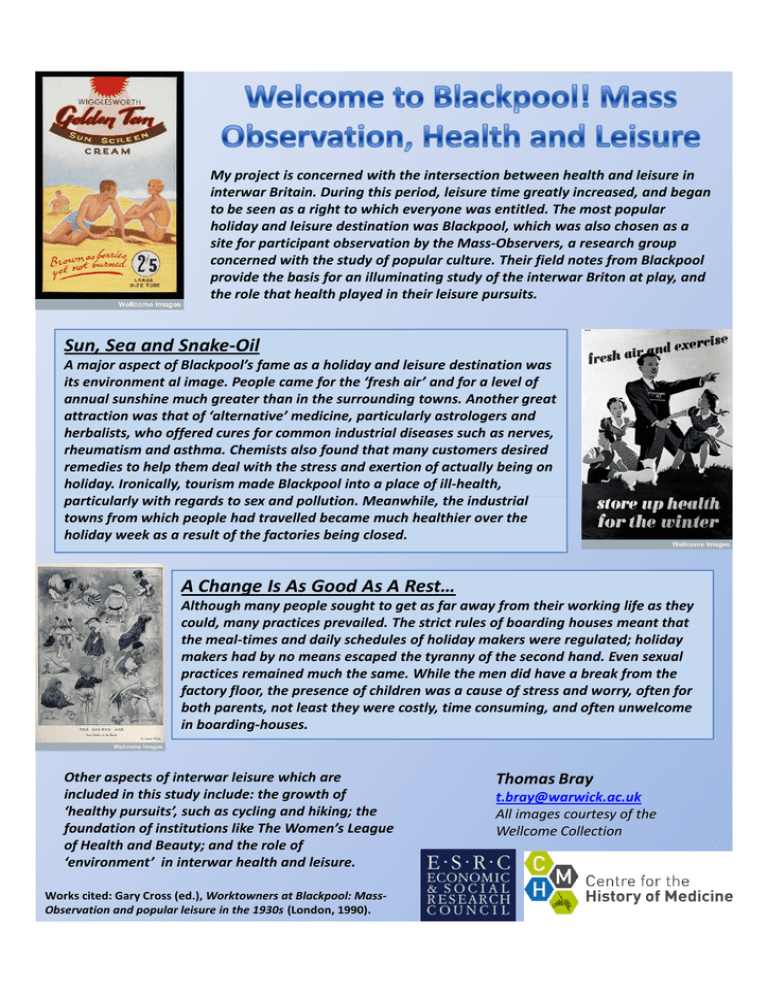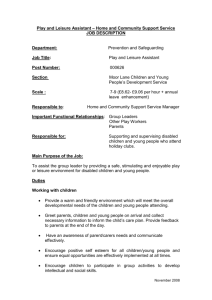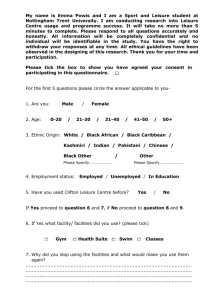
My project is concerned with the intersection between health and leisure in
interwar Britain. During this period, leisure time greatly increased, and began
to be seen as a right to which everyone was entitled. The most popular
holiday and leisure destination was Blackpool, which was also chosen as a
site for participant observation by the Mass-Observers, a research group
concerned with the study of popular culture. Their field notes from Blackpool
provide the basis for an illuminating study of the interwar Briton at play, and
the role that health played in their leisure pursuits.
Sun, Sea and Snake-Oil
A major aspect of Blackpool’s fame as a holiday and leisure destination was
its environment al image. People came for the ‘fresh air’ and for a level of
annual sunshine much greater than in the surrounding towns. Another great
attraction was that of ‘alternative’ medicine, particularly astrologers and
herbalists, who offered cures for common industrial diseases such as nerves,
rheumatism and asthma. Chemists also found that many customers desired
remedies to help them deal with the stress and exertion of actually being on
holiday. Ironically, tourism made Blackpool into a place of ill-health,
particularly with regards to sex and pollution. Meanwhile, the industrial
towns from which people had travelled became much healthier over the
holiday week as a result of the factories being closed.
A Change Is As Good As A Rest…
Although many people sought to get as far away from their working life as they
could, many practices prevailed. The strict rules of boarding houses meant that
the meal-times and daily schedules of holiday makers were regulated; holiday
makers had by no means escaped the tyranny of the second hand. Even sexual
practices remained much the same. While the men did have a break from the
factory floor, the presence of children was a cause of stress and worry, often for
both parents, not least they were costly, time consuming, and often unwelcome
in boarding-houses.
Other aspects of interwar leisure which are
included in this study include: the growth of
‘healthy pursuits’, such as cycling and hiking; the
foundation of institutions like The Women’s League
of Health and Beauty; and the role of
‘environment’ in interwar health and leisure.
Works cited: Gary Cross (ed.), Worktowners at Blackpool: MassObservation and popular leisure in the 1930s (London, 1990).
Thomas Bray
t.bray@warwick.ac.uk
All images courtesy of the
Wellcome Collection






